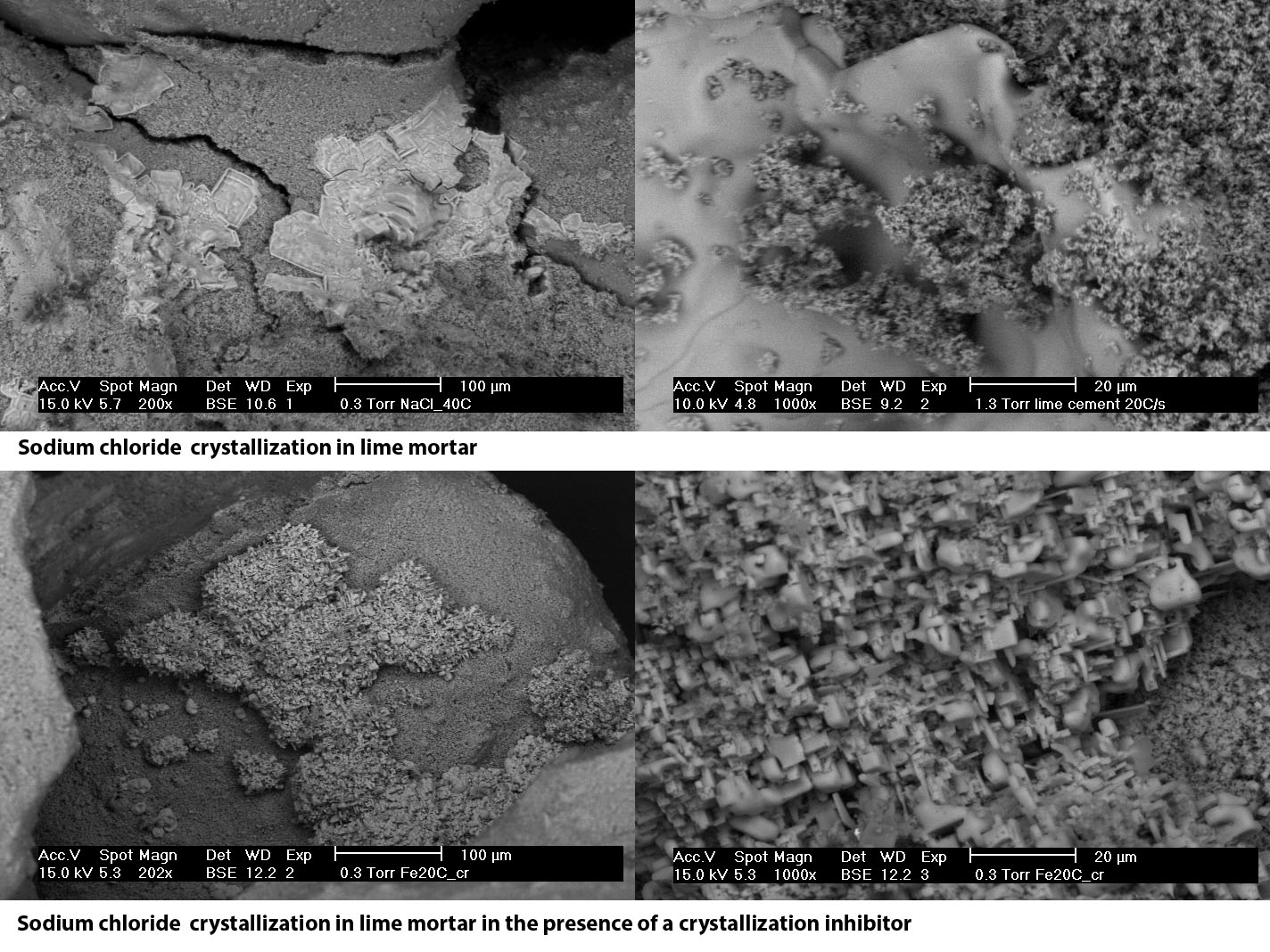Renovating mortars with mixed-in inhibitors
Mortars are recurrently damaged and in need of frequent replacement due to salt crystallization. Mortars with mixed-in inhibitors can help mitigate salt damage. The new research project MORISAL investigates how these inhibitors can create a sustainable and cost-effective answer to a recurrent and severe problem met in practice.
Salt crystallization is a common cause of weathering of building materials worldwide. Mortars, including plasters and renders, are particularly recurrently damaged and in need of frequent replacement. This results in high costs. This severe problem met in practice leads to the quest for new, sustainable solutions, improving the service life of renovation mortars.
The proposed research aims at the development of renovation mortars with an improved durability with respect to salt crystallisation, thanks to the use of crystallisation inhibitors mixed in the mass. These inhibitors are molecules or ions capable to modify salt crystallisation, making it less harmful. To achieve this, fundamental and aspects related to the performance of the product will be investigated. One such issue, for example, is the development of crystallisation pressure in the pores of a building material.
BK Bouwkunde and the Faculty of Civil Engineering and Geoscience lead the project and collaborate with the Technical University of Eindhoven, the Radboud University, a research centre, a mortar producer, and branch organisations.
More information
For more information on this research project, visit MORISAL or contact lead researcher Barbara Lubelli.

